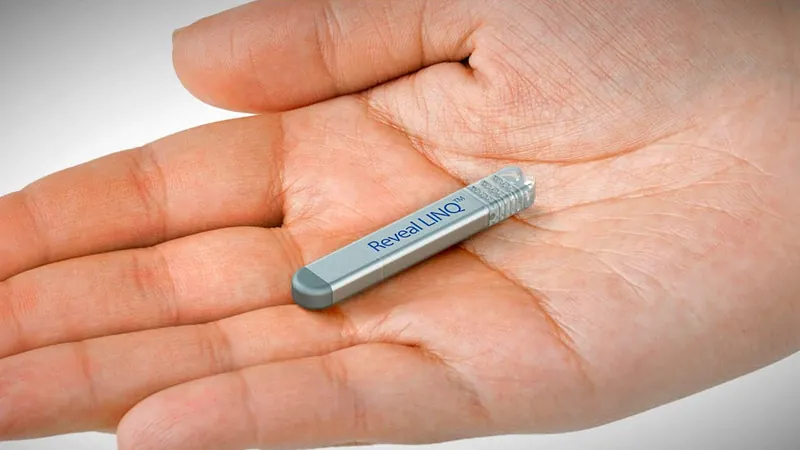
Breakthrough in Heart Failure Management: Diuretic Strategy Linked to Cardiac Monitoring Shows Promising Results!
2024-10-11
Author: Jia
In an exciting development for the management of heart failure (HF), the ALLEVIATE-HF trial has revealed that linking medical interventions to cardiac monitoring may significantly enhance patient safety and treatment outcomes. This small-scale study explored a novel approach where alerts from a subcutaneous insertable cardiac monitor (ICM) prompted healthcare providers to administer diuretic therapy for patients at risk of worsening HF.
During the trial, healthcare professionals did not observe any serious adverse events from this intervention over a four-day period, as long as specific safety criteria were met. Remarkably, the intervention was repeated when high-risk alerts persisted, irrespective of whether patients displayed symptoms. Among the 59 patients closely monitored, just 13 adverse events were recorded, indicating a high level of safety associated with this innovative approach.
The findings, led by Dr. Rami Kahwash of Ohio State University, demonstrated that an impressive 80% of patients with symptoms experienced relief, while 93% of those without symptoms did not develop any HF symptoms during an average follow-up period of 11.8 months. This early intervention strategy aims to lower the number of HF patients who face readmissions after discharge, a critical challenge in healthcare.
Experts like Drs. Ting-Tse Lin and Jyh-Ming Jimmy Juang from National Taiwan University praised the ALLEVIATE approach for bridging a significant gap in remote monitoring and actionable treatment intervention. As healthcare gradually integrates these advanced monitoring systems, ensuring they are accessible to various patient demographics is crucial for success.
The ALLEVIATE-HF group's decision to utilize ICMs stems from their safety and applicability across a diverse range of HF patients, being less invasive than traditional cardiac devices. ICMs provide continuous monitoring of vital parameters, including heart rate and activity levels, potentially revolutionizing how heart failure is managed.
During the study, 146 high-risk scores were recorded among 33 ICM patients, with about half qualifying for diuretic intervention under safety standards. The research team emphasized that complications during treatment were minimal and primarily linked to typical diuretic side effects, with no safety issues for patients who began the intervention asymptomatically.
Despite the promising results, the authors acknowledged important limitations, including the small sample size and absence of a dedicated control group, urging further research. The ongoing phase 2 trial, designed to evaluate the efficacy of this diuretic strategy on a larger scale, is eagerly anticipated.
This pioneering research not only underscores the potential of cardiac monitoring in improving heart failure outcomes but also paves the way for safer healthcare practices and improved patient quality of life. Heart failure management may never be the same again! Stay tuned for updates on this groundbreaking trial as it progresses toward its next phase!



 Brasil (PT)
Brasil (PT)
 Canada (EN)
Canada (EN)
 Chile (ES)
Chile (ES)
 España (ES)
España (ES)
 France (FR)
France (FR)
 Hong Kong (EN)
Hong Kong (EN)
 Italia (IT)
Italia (IT)
 日本 (JA)
日本 (JA)
 Magyarország (HU)
Magyarország (HU)
 Norge (NO)
Norge (NO)
 Polska (PL)
Polska (PL)
 Schweiz (DE)
Schweiz (DE)
 Singapore (EN)
Singapore (EN)
 Sverige (SV)
Sverige (SV)
 Suomi (FI)
Suomi (FI)
 Türkiye (TR)
Türkiye (TR)